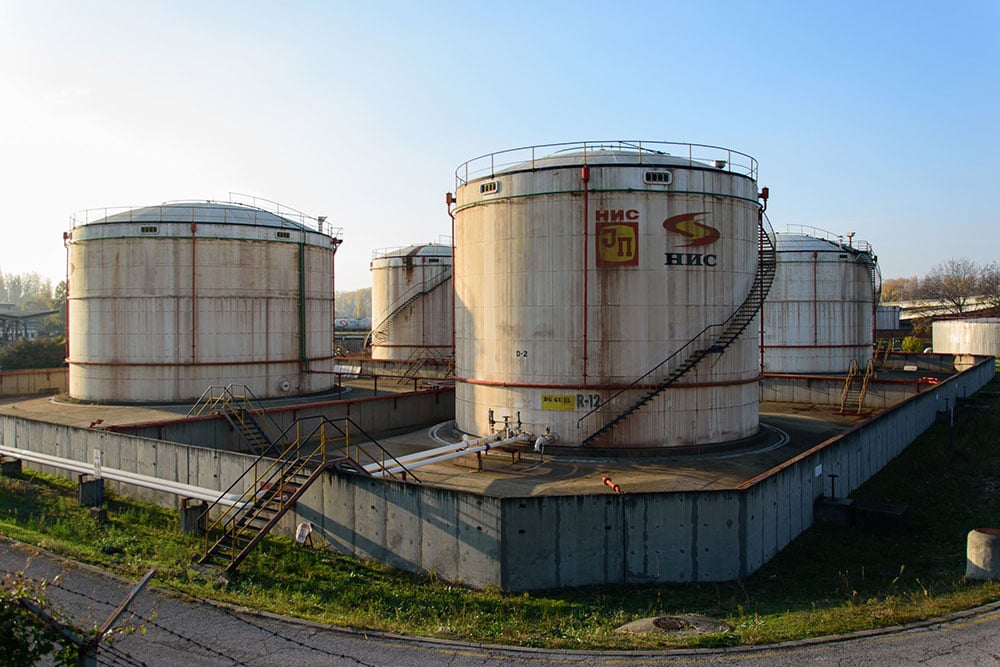As the United States announced new sanctions targeting the Russian oil and gas sector, including its Serbian subsidiary NIS (Naftna industrija Srbije), debates about mitigating potential damage to Serbia have gained momentum. Individuals who previously championed free market principles now argue for the nationalization of NIS as a strategic asset, advocating that minimal compensation—if any—should be paid to Russia. At the same time, they propose transferring ownership to Western companies such as Shell or ExxonMobil.
This perspective conflates capitalist production with capital ownership, as though the identity of the capitalist could alter the fundamental nature of capitalism. The underlying implication is that “good” capitalists make businesses less exploitative—a belief many capitalists would be happy for people to adopt.
During his January visit to Belgrade, U.S. Assistant Secretary of State for European and Eurasian Affairs, James O’Brien, assured that Serbia’s oil supply would remain unaffected. He also noted that Russia had acquired NIS for “very little money” and had extracted “billions of euros from Serbia in recent years.” O’Brien suggested that Serbia now has an opportunity to manage this industry for the benefit of its people.
This statement contains elements of truth while conveniently omitting others. For instance, whether NIS was sold at a fair price is debatable, though proponents of neoliberalism would argue that market conditions dictate transaction prices. However, the large-scale outflow of foreign capital in the form of repatriated profits is undeniable as I argued in my previous article. In 2023 alone, these outflows amounted to nearly €5 billion, surpassing foreign direct investment (FDI) inflows by half a billion euros. NIS’s net profit for the year was approximately €380 million, of which the Russian share (56%) would represent just 3% of the total repatriated profits. Thus, NIS is not the only, or even the main, culprit although this leaves open the question if NIS is more exploitative than other foreign companies.
The broader reality is that foreign capitalists, Russian or otherwise, extract significant profits from Serbia, often with little benefit to the host country. What O’Brien neglected to mention is that this extraction of wealth results from agreements consciously made by the Serbian government. While it is debatable whether better terms could have been negotiated, these profit outflows are not inevitable natural phenomena like rain or snow but the product of deliberate policy decisions by the state authorities.
Class conflict behind the NIS debate
The call to transfer NIS from “bad” Russian owners to “good” Western owners reflects an internal class struggle between two groups of capitalists: political capitalists and entrepreneurial capitalists. Political capitalists derive their competitive advantage from state benefits, while entrepreneurial capitalists rely on technological innovation or low labor costs. As my colleague Volodymyr Ishchenko observes, political capitalists thrive in regions where the state has historically dominated the economy and accumulated immense capital, which is now open to private exploitation.
Political capitalists depend on specific individuals, parties, or regimes for their wealth accumulation, whereas entrepreneurial capitalists are less tied to political structures. This distinction explains the logic behind calls to transfer NIS to entrepreneurial capitalists aligned with Western markets. These calls are not about reducing profits or increasing domestic reinvestment but rather facilitating a hostile takeover by one capitalist faction over another.
Should NIS be nationalized?
In theory, nationalization appears to be the best option. However, two key conditions must be met for it to be successful. Firstly, nationalization should follow clear, consistent criteria, not be used selectively to redistribute property among competing capitalist factions. Secondly, public enterprises must operate transparently and prioritize national interests over private gains. State capitalism is not inherently superior to private capitalism as many Marxist thinkers, including David Harvey, argued. As my good colleague Boris Kagarlitsky (2008) documented, state capitalism in Russia and other semi-peripheral economies has been unable to transcend the exploitative dynamics of private capitalism. Serbia’s track record with public enterprises—marred by corruption scandals—casts doubt on the feasibility of such an arrangement.
While the challenges surrounding NIS and foreign investments in Serbia may seem daunting, the situation is not entirely bleak. The overall framework for foreign investment can be improved with a strategic and methodical approach. Investment criteria and conditions must be assessed on a case-by-case basis to ensure they align with Serbia’s long-term development goals. Foreign investments, as Samir Amin (1976) argued, contribute to self-centered development only when they strengthen or create new regional competitive advantages, develop domestic markets, and enhance the nation’s economic resilience, rather than primarily serving foreign interests.
Public enterprises, like NIS, have the potential to serve as vehicles for national development, but this requires responsible and transparent governance. They must be managed in a way that prioritizes public over private interests, ensuring that their operations contribute meaningfully to national well-being. A robust framework for public sector governance, built on accountability and public scrutiny, can unlock the potential of state-owned enterprises to become engines of sustainable development.
Notwithstanding the risks inherent in public ownership, the worst possible outcome in the case of NIS would be its transfer to yet another foreign capitalist entity. Such a move would perpetuate the cycle of dependency and capital extraction that has plagued Serbia’s economy for decades. Instead, Serbia has an opportunity to reimagine its approach to both foreign and domestic investment, charting a course toward greater economic sovereignty and resilience. By prioritizing investments that contribute to long-term national development objectives and reforming the governance of public enterprises, Serbia can turn its current challenges into opportunities for a more sustainable and equitable economic future.
But this requires vision, courage and political will.
